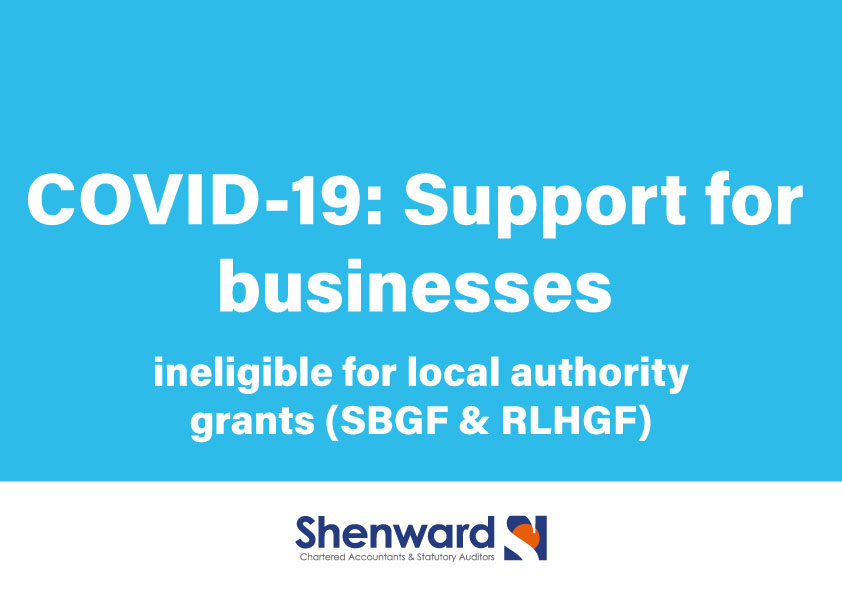Small Business Funding: What you need to know about the top-up to local business grant fund scheme.
On May 1st, the Government announced it would be introducing further support for small or micro businesses which had been left out of the original support schemes such as the Small Business Grant Fund or the Retail, Leisure and Hospitality Fund.
This additional funding which will be provided to local authorities will mean that grants to the value of £25,000, £10,000 or any amount under £10,000 will be available for those businesses who meet specific criteria.
We are pleased to confirm that the criteria has now been released, and we will be covering the specific points throughout this article.
Who is eligible?
Local authorities have been given the power to deliver grants under the new scheme to businesses which:
• Are small or micro business with ongoing fixed costs who were trading on 11 March 2020
• Are businesses with relatively high ongoing fixed property-related costs
• Are able to demonstrate they have suffered significant loss of income due to COVID-19 crisis.
• Occupy property, or part of a property, with a rateable value or annual rent or annual mortgage payments below £51,000.
• Have less than 50 employees, have a turnover of less than £10.2million, and a balance sheet total of no more than £5.1m
However, they have been advised to prioritise the following:
• Small businesses in shared offices or other flexible workspaces. Examples include units in industrial parks, science parks and incubators which do not have their own business rates assessment
• Regular market traders with fixed building costs, such as rent, who do not have their own business rates assessment
• Bed & Breakfasts which pay Council Tax instead of business rates
• Charity properties in receipt of charitable business rates relief which would otherwise have been eligible for Small Business Rates Relief or Rural Rate Relief.
Specific criteria:
As with all other financial schemes laid out by the Government, there is certain criteria that a company MUST meet in order to claim through the top-up Discretionary Fund.
These are:
• The business must not be in administration, insolvent or have been issued a striking-off notice.
• Must not be eligible for other cash grants available from Central Government Grant Schemes such as:
– Small Business Grant Fund
– Retail, Hospitality and Leisure Grant
– The Fisheries Response Fund
– Domestic Seafood Supply Scheme (DSSS)
– The Zoos Support Fund
– The Dairy Hardship Fund
• Businesses can have claimed via the Coronavirus Job Retention Scheme or the Self-Employed Income Support Scheme though.
What is the application process?
The government has recognised that in order to prevent fraud and identify the businesses which take priority for this funding, there will need to be an application process, although this is yet to be released.
But what we do know is that local authorities will likely conduct a number of pre-payments checks to confirm eligibility and allow them to make discretionary decisions. Businesses that are accepted for cash grants via this scheme will likely be contacted via phone or letter confirming their payment.
What else do I need to know?
As with all grant income that businesses received, funds received via this scheme will be subject to tax. However, only those businesses which end the year with an overall profit when the grant is included will subject to tax.
On face value, the ‘top-up’ appears to go some way to supporting a section of the business community that had fallen through the cracks of the Government’s various COVID-19 support packages.
With local authorities having the discretion to determine how they allocate the funding and which type of businesses they want to prioritise, it’s likely that those most affected will receive the funds they desperately need, in a short space of time – as soon as early June.
If you’d like to discuss this, or any aspect of the funding available via the government, please email hello@shenward.com or contact us via our online form.


